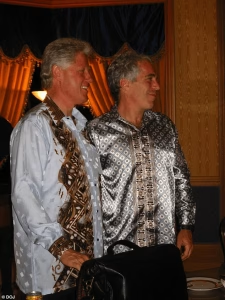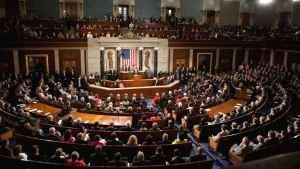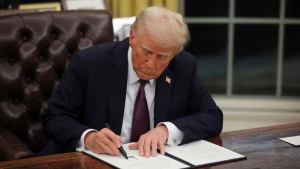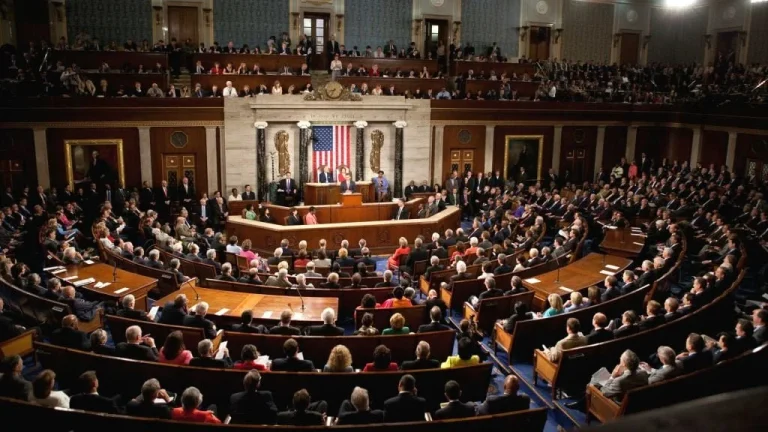Note: VIDEO at the end of the article.
In April 2025, a dramatic legal and political confrontation erupted in Milwaukee, Wisconsin, when Circuit Judge Hannah Dugan was arrested and suspended from the bench following accusations that she interfered with a federal immigration arrest. The incident has thrust the longtime judge into the national spotlight and raised broader questions about the separation of powers, judicial immunity, and immigration enforcement practices.
Judge Dugan, a respected jurist with a background in public interest law and civil rights, stands accused of obstructing federal authorities by helping a noncitizen avoid detention by U.S. Immigration and Customs Enforcement (ICE). Her arrest triggered an immediate backlash from both supporters and critics, igniting debate about the appropriate role of judges in the context of immigration policy enforcement and courthouse conduct.
The Incident: What Happened?
The controversy began on April 18, 2025, when Eduardo Flores-Ruiz, a noncitizen facing misdemeanor battery charges, appeared in Judge Dugan’s courtroom. According to federal authorities, ICE agents were present at the courthouse that day with the intention of detaining Flores-Ruiz upon the conclusion of his court hearing.
What transpired next is at the heart of the case against Judge Dugan. Prosecutors allege that Dugan instructed Flores-Ruiz’s public defender to escort him out of the courthouse through a non-public exit, thereby helping him avoid federal agents waiting at the main entrance. Federal officials later located and detained Flores-Ruiz outside the building following a brief pursuit.
Judge Dugan was arrested by FBI agents on April 25 and charged with obstruction of justice and concealing a person from arrest. While she has not been convicted of any crime, the Wisconsin Supreme Court quickly suspended her from performing judicial duties pending the outcome of the case. The court emphasized that the suspension was not a determination of guilt but was necessary to uphold public confidence in the judiciary.
Defense and Legal Arguments
Judge Dugan’s legal team quickly moved to challenge the charges. Central to her defense is the argument that she was performing a judicial function in facilitating Flores-Ruiz’s departure from the courthouse. Her lawyers argue that her actions are protected under the long-standing legal doctrine of judicial immunity, which shields judges from being sued or prosecuted for acts conducted within the scope of their judicial duties.
They point to the precedent set by the 2024 U.S. Supreme Court decision in Trump v. United States, in which the court ruled that certain actions taken by a sitting president were immune from prosecution if carried out as part of official duties. While that case focused on executive power, Dugan’s attorneys argue that similar protections should apply to the judiciary to maintain the independence of the courts.
Additionally, more than 130 retired judges from around the country have signed onto an amicus brief supporting Dugan, warning that the prosecution threatens the principle of judicial independence. “Judges must be free to make decisions without fear of retaliation or criminal liability,” the brief states. “To prosecute a judge for actions taken in a courtroom risks chilling judicial decision-making and undermining the rule of law.”
Political and Public Reaction
The arrest and suspension of Judge Dugan have quickly become a national flashpoint. Conservative politicians and Trump administration officials have hailed the charges as a necessary step in upholding the rule of law and ensuring that federal immigration enforcement is not obstructed by local officials.
FBI Director Kash Patel accused Dugan of “deliberately undermining a lawful federal operation,” adding that her conduct placed agents and the public at risk. Attorney General Pam Bondi emphasized that “judges are not above the law” and that any action that interferes with federal law enforcement should be treated seriously.
On the other side, progressives and civil liberties organizations have rallied to Dugan’s defense. Senator Bernie Sanders issued a statement calling the charges “a dangerous abuse of executive power,” warning that they could erode public trust in the impartiality of the judiciary. Representative Mark Pocan described the arrest as “an act of political intimidation” designed to send a message to judges who may resist the administration’s aggressive immigration policies.
Immigrant rights groups have also weighed in, organizing demonstrations outside the courthouse and calling for protections for undocumented immigrants facing legal proceedings. These advocates argue that courthouses should be safe spaces where individuals can seek justice without the fear of immigration arrest. Many note that ICE activity in and around courthouses has surged in recent years, leading to growing concern that such practices deter witnesses and defendants from appearing in court.
The Broader Legal and Political Implications
The case against Judge Dugan touches on some of the most fundamental tensions in the American legal system today. At its core is the question of how far federal authorities can go in enforcing immigration laws — particularly in spaces traditionally seen as under the jurisdiction of state or local governments.
Judicial independence is another key issue. Legal scholars argue that while judges are not above the law, their ability to carry out their duties without fear of criminal prosecution is vital to the health of the legal system. “This case is a test of whether judges will be protected when they act in ways that the federal government finds politically inconvenient,” said one law professor.
Others point to the potential precedent this case could set. If Dugan is convicted, it could open the door for future prosecutions of judges based on discretionary decisions made in the courtroom — a prospect many find troubling. “If we criminalize every judicial decision that goes against the wishes of federal officials, we are fundamentally altering the balance of power,” said another legal analyst.
From the immigration perspective, the case reinforces the growing divide between federal immigration enforcement and local jurisdictions. Many cities and states have adopted policies designed to limit cooperation with ICE, arguing that doing so undermines community trust and public safety. The federal government, under Trump, has pushed back hard against such policies, frequently suing local jurisdictions and, in cases like Dugan’s, pursuing criminal charges.
What’s Next?
As of early June 2025, Judge Dugan remains suspended but not convicted. Legal motions are pending, and a decision on whether the case will proceed to trial is expected in the coming months. Meanwhile, public demonstrations continue, and the debate over immigration policy and judicial independence shows no signs of slowing.
For Dugan, the case has turned her into a symbol — either of defiance against federal overreach or of judicial misconduct, depending on one’s perspective. For the country, it has become a test of how the judiciary functions in a time of political polarization and increasing federal assertiveness.
No matter the outcome, the Dugan case will likely be remembered as a pivotal moment in the ongoing struggle over immigration enforcement and the integrity of the courts. As one retired judge put it: “What’s at stake is not just one judge’s career, but the principle that justice must be blind — even to political pressure.”
PLAY:
https://www.youtube.com/watch?v=aWpY4hwCmNo

James Jenkins is a celebrated Pulitzer Prize-winning author whose work has reshaped the way readers think about social justice and human rights in America. Raised in Atlanta, Georgia, James grew up in a community that instilled in him both resilience and a strong sense of responsibility toward others. After studying political science and creative writing at Howard University, he worked as a journalist covering civil rights issues before dedicating himself fully to fiction. His novels are known for their sharp, empathetic portraits of marginalized communities and for weaving personal stories with broader political realities. Jenkins’s breakout novel, Shadows of Freedom, won national acclaim for its unflinching look at systemic inequality, while his more recent works explore themes of identity, resilience, and the fight for dignity in the face of oppression. Beyond his novels, James is an active public speaker, lecturing at universities and participating in nonprofit initiatives that support literacy and community empowerment. He believes that storytelling is a way to preserve history and inspire change. When not writing, James enjoys jazz music, mentoring young writers, and traveling with his family to explore cultures and stories around the world.









